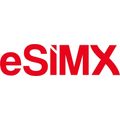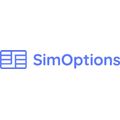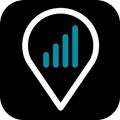Billion Connect eSIM si concentra sulla fornitura di un servizio di navigazione globale senza scheda SIM fisica, ha coperto oltre 150 paesi/regioni e una rete locale di alta qualità.

Billion Connect eSIM si concentra sulla fornitura di un servizio di navigazione globale senza scheda SIM fisica, ha coperto oltre 150 paesi/regioni e una rete locale di alta qualità.
Promo / Codice Coupon
Piani dati eSIM Billion Connect per i paesi baltici
Domande frequenti
Billion Connect offre eSIM con dati illimitati per i paesi baltici?
Billion Connect fornisce eSIM con dati illimitati che coprono Estonia, Lituania e Lettonia come parte della sua linea di prodotti Europe eSIM [33 Countries]. Questi piani illimitati partono da $2.99 USD per una validità di 1 giorno e salgono a $199.31 USD per una validità di 90 giorni. Il tethering è consentito su tutti i piani illimitati e, sebbene pubblicizzino dati illimitati, le velocità di dati normali possono essere limitate e potrebbero essere rallentate dopo un uso intenso a causa di una Fair Usage Policy. I viaggiatori preoccupati dalle restrizioni di velocità dovrebbero contattare Billion Connect per confermare se la FUP si applica alla copertura baltica e la quantità tipica di dati che possono essere trasmessi a velocità normale.
Billion Connect offre l'eSIM baltica con numero di telefono e SMS?
Billion Connect non offre alcun piano eSIM baltico che includa un numero di telefono o capacità SMS. Il provider fornisce solo piani dati per i viaggiatori nella regione baltica. Gli utenti possono comunque comunicare utilizzando servizi VoIP comuni come WhatsApp, Telegram o iMessage, che funzionano sulla connessione dati senza necessità di un numero telefonico locale o di supporto SMS.
Quali paesi sono coperti dai piani eSIM di Billion Connect nei paesi baltici?
Billion Connect offre diversi piani eSIM che coprono Estonia, Lituania e Lettonia, tra cui Europe eSIM [33 Paesi]/Giorno, Global eSIM [45 paesi]/Giorno, Europe eSIM [41 Paesi]/Giorno, Global eSIM [87 Regioni], Global eSIM [155 Regioni], Europe eSIM [chiamate & SMS], e Orange World eSIM. Tutti questi piani forniscono copertura in Estonia, Lituania e Lettonia.
Riepilogo con Gen AI. Ultima modifica:




